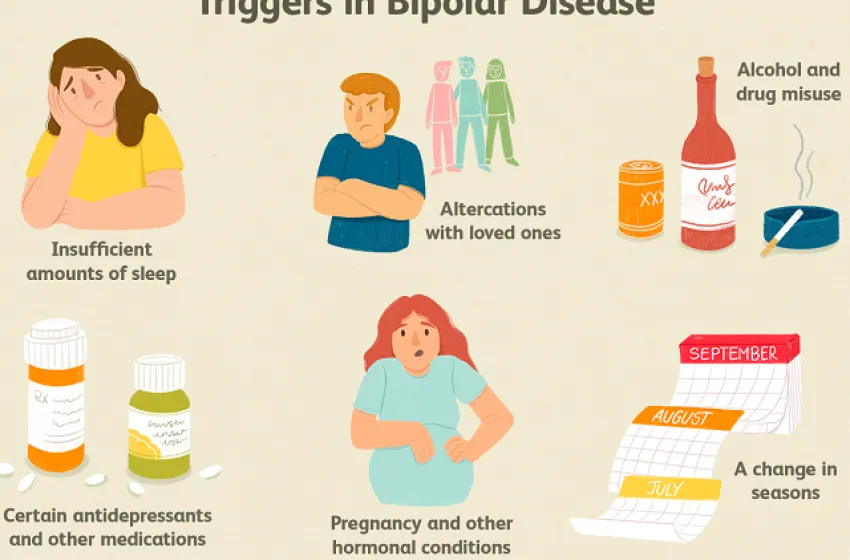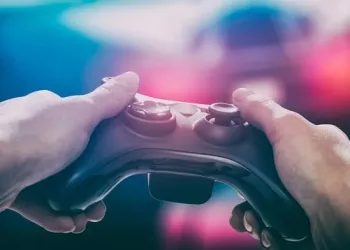What is Bipolar Disorder
Bipolar disorder often appears in late adolescence or early adulthood. At least half of the cases of bipolar disorder are those under 25 years of age.
Bipolar disorder often appears in late adolescence or early adulthood. At least half of the cases of bipolar disorder are those under 25 years of age. However, it does not rule out the possibility that this condition can also be found in children and adults. Always consult a doctor for more information.
Some people often experience drastic changes in mood and energy from the highest to the lowest position called bipolar. Data from the WHO (World Health Organization) in 2016 showed that the number of people with bipolar reached 60 million people.
What is Bipolar Disorder? Bipolar Disorder or also known as bipolar disorder is a mental condition that causes extreme mood swings. This makes people with bipolar disorder have episodes of mood that are very happy (mania) or very sad (depression). Often, between the two changes, patients remain in a normal mood.
When a patient feels sad, he or she will feel depressed, lose hope, and may even lose the desire to perform daily activities. But when feeling happy, the patient will feel very excited and full of passion. These mood swings can occur several times a year, or even a week in more severe cases. This mental condition can lead to broken personal relationships, low motivation and productivity in the workplace, and even worse can lead to suicidal feelings. Bipolar disorder is strongly advised to seek medical help when experiencing significant mood swings.
Symptoms of Bipolar Disorder
People with bipolar disorder will experience great emotional feelings and occur at a certain period or known as 'mood episodes'. Each mood episode shows a drastic change from the person's normal mood and behavior. An episode where he looks too happy and excited is called a manic episode while a depressive episode shows a form of extreme sadness and loss of will. Sometimes, a mood episode also shows both symptoms of mania and depression.
The episode is called mixed condition. Patients will also become very irritable and irritable in a mood episode. These mood swings are also usually accompanied by extreme changes involving energy, activity, sleep patterns, and daily behavior.
During a manic episode, several features and symptoms that can arise from bipolar disorder:
- Feeling too happy and excited.
- Very sensitive and easily offended.
- Eat a lot.
- Lack of sleep.
- Be reckless and do risky activities.
- Speak very fast and change the topic of conversation from one topic to another.
- Having a decreased ability to make an assessment or make a decision.
- You can also see strange things and hear mysterious voices.
Meanwhile, in a depressive episode, some signs and symptoms of bipolar disorder are:
- Feeling very sad and hopeless in the long run.
- Loss of interest in doing daily activities.
- Eat less.
- Feeling sleepy and lazy.
- Feeling overly self -conscious and inferior.
- It's hard to concentrate.
- Have suicidal thoughts.
The above episodes can happen several times a year or even every week. Please contact your doctor if you and your loved ones show the symptoms mentioned above.
Some things you should check with your doctor regarding bipolar disorder are:
- Emerging symptoms of mood periods that occur over a long period of time.
- Have thoughts of committing suicide.
- Feeling aggressive and confrontational.
- Difficulty sleeping in a few days.
What is the Cause of Bipolar Disorder?
To date, it has not been clearly identified what the specific causes of bipolar disorder are, but there are several factors that have been known to cause the symptoms of bipolar disorder.
The factors that cause bipolar disorder are:
- Brain condition. The brain can go through various physical changes that affect the levels of brain chemicals (neurotransmitters) that are in it. These transmitters are substances that affect mood.
- Genetic descent. Your parents or other family members may have the possibility of having the seeds of bipolar disorder inherited from you.
- The influence of the social environment. What is bipolar disorder according to researchers have found that there may be several social factors that can lead to the onset of bipolar disorder. These factors can be feelings of stress about a traumatic event in childhood, low self-confidence, or experiencing a tragic loss.
What Affects Bipolar Disorder?
Some of the risk factors below that can affect your chances of developing bipolar disorder are:
- Periods of high stress.
- Abuse of alcohol or illicit drugs.
- Have a family member with bipolar disorder or other mental disorders.
- Experiencing a loss that occurs suddenly, such as the death of a loved one.
How to Treat Bipolar Disorder?
Treatment for people with bipolar disorder can not cure the patient but can stabilize mood swings. Appropriate treatment will be determined by a psychiatrist (a doctor who specializes in mental disorders). Depending on the condition, some treatments that will be given for bipolar disorder are:
- Drug therapy. Doctors can recommend prescriptions to stabilize the mood. These medications can help reduce the symptoms you experience. You may be required to take prescription medications over a long period of time to prevent an episode of depression that could lead to suicide. Existing medications usually consist of antidepressants, mood stabilizers, antipsychotics, and anti-stress medications.
- Counseling. You may need to do counseling to discuss the condition and how to get through the emotional episode you are experiencing. Find a community that can help you with this disorder.
- Treatment of certain substance abuse. If you suffer from a dependence on certain substances, it is very important to overcome the dependence, because the condition will make it difficult for you to alleviate the condition experienced.
- Hospital care. In more severe cases, you will be required to be hospitalized for periodic supervision. Such treatment especially happens when you experience signs of wanting to commit suicide. At this level, you could hurt yourself and others. Not all situations are the same, so it's best to always discuss any complaints you have with a psychiatrist.
What are the usual tests done for bipolar disorder?
Some tests that are commonly performed by doctors or psychiatrists to help confirm the diagnosis of bipolar disorder are: Physical tests. This test will help determine the source of the complaint. Psychological test. The doctor will ask you some questions about your feelings, mood episodes, and behavior patterns. Mood Description. The doctor will write a diary that contains sleep patterns, moods, and behaviors to help determine the diagnosis.
































